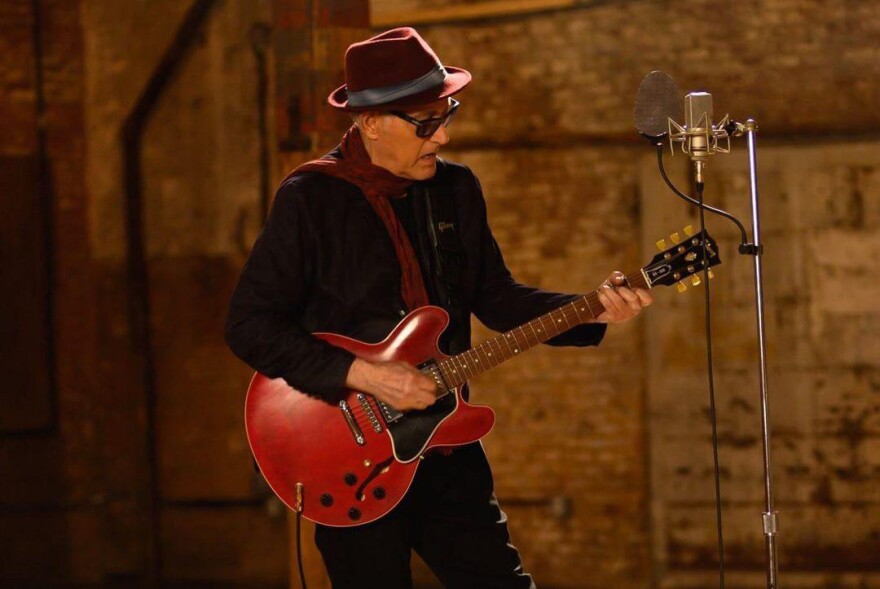COMMENTARY Even if Venezuela looks lost to ruinous dictatorship now, the resilience of an iconic voice like Yordano is a reminder of a better time — and to keep hoping the country still has a better future.
Can music move us to keep up hope — even for a country that's being declared dead?
The younger man in me wants to think so.
I know the prevailing media mood is that Venezuela, like Cuba before it, is irretrievably lost — that all efforts to keep it from being sucked into the black hole of interminable dictatorship have failed, that all we can do now is write it off as El Nuevo North Korea.
Kim Jong Un with a mustache.
It’s hard to argue with that. The mustached monster in this case, Venezuelan President/Dictator Nicolás Maduro, has made it berserkly clear this month that he and his socialist goons will never cede power in a fair election; that human rights watchdogs will from now on be jailed or hauled to Simón Bolívar International Airport with one-way tickets out, and that the millions of Venezuelans fleeing the country’s humanitarian catastrophe are los yanquis’ problem, not his.
READ MORE: Biden's next Latin America czar faces a big stumbling block: America
So like any Latin America watcher, I should be writing Venezuela’s obituary right now.
But I can’t bring myself to do that when I know Yordano di Marzo is still alive and kicking.
Or rather, singing.
Anyone who had even remote contact with Venezuela in the 1980s would likely have heard a Yordano song. He was more than just the country’s soundtrack in those days; he was the last troubador echo of a collective national confidence.
That mettle would collapse under the weight of its corrupt underbelly in the 1990s, ushering in the left-wing revolution that a quarter century later still rules, and ruins, Venezuela. Still, if there's any dulcet reminder of the spirit Venezuela could and should have brought into this century, it’s Yordano’s music.
I know, because I fell in love in Venezuela with the woman who’s my wife of 36 years — a surrender made richer by those sun-kissed-and-sorrowful Yordano tracks, in all their tropical-jazz smartness, playing in the background.
“Manantial de Corazón.” “Otra Cara Bonita.” “No Voy a Mover un Dedo.”
I feel especially lucky to have lived as a twenty-something in Venezuela in those years, grooving with Yordano’s cerebral lyrics, artful melodies and stylish musicianship — and spared the numbing repetitiveness of, say, the Phil Collins hits suffocating U.S. radio at the time. I was blessed to be romantically smitten while listening to “Hoy Vamos a Salir” and not “Sussudio.”
Yordano was the last troubador echo of a collective Venezuelan confidence in the 1980s, which would collapse under the weight of its corrupt underbelly.
So it grabbed me in the chest Wednesday morning when a Yordano tweet fell into my X feed announcing the 10th anniversary of his cancer diagnosis — which, at age 72, he’s all but beaten. His doctor's orders now are "to live." To call his grandchildren, make orange juice for his wife Yuri and play his guitar “to see if a new song might appear.”
Psyche lift
Two weeks ago, in fact, Yordano gave a free concert in Caracas to mark his 40 years as a recording artist. Thousands of Venezuelans attended, even youngsters who were just a gleam in their papis’ eyes when he released his first album in 1984.

Steeped as they might be in reggaeton, video of the event shows they got why Yordano’s canciones moved their moms and dads — and why those self-assured strains resonate with anyone who remembers a time when Venezuela’s future still promised development instead of despair.
After reading his tweet, I got in touch with Yordano, who lives in New York now to stay close to his oncologist, and he acknowledged the effect his work has on Venezuelans both inside and outside the country today — its ability to “lift them beyond the weight many are feeling.”
“It’s very gratifying,” he said, “to know it can still touch their psyche — that it still arrives there.”
Yordano’s music isn’t political or all that overtly social. Nor were The Beatles, for that matter; nor was Cuban salsa goddess Celia Cruz. But, like them, Yordano evokes a more positive frame of mind, for Venezuelans and non-Venezuelans like me. And his resilience is a reminder we shouldn't lose hope Venezuela can someday recapture that potential.
So as much as this sixty-something journalist knows he should be penning Venezuela’s death notice, the twenty-something who fell in love in Venezuela all those years ago can’t bring himself to file it just yet.
Not while Yordano still arrives.






